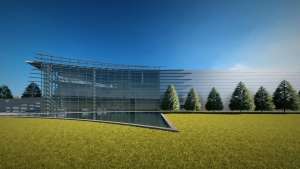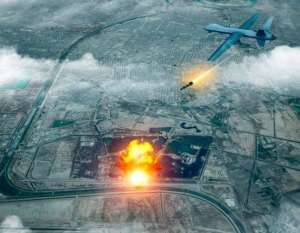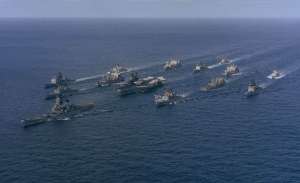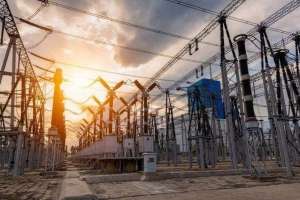The population and the small companies, which still benefit from regulated prices for electricity and natural gas have understood that liberalization means higher prices, but they haven't understood why we need to bear these hikes "just because the European Union says so". We are a rich country, with lots of natural resources and we should benefit from that.
The representatives of the ANRE (the regulator of the Romanian energy market) explained that the integration of the energy market in the European Union (EU) means accepting many rules, among which the formation of the price of electricity on the free market, based on supply and demand. We currently have over 50% of the market use a regulated price (set by the authorities), which is also a means of social protection.
Romania thus has the lowest natural gas and electricity prices in the EU, and three quarters of its exports go to EU member countries. Thus, the Romanian manufacturing companies get much cheaper energy than those in the rest of the EU, which gives them a competitive advantage, which is construed as "dumping". That is why, the representatives of the ANRE explained, the large price gap between Romania and the EU average needs to be reduced. Electricity is currently over 30% cheaper than the EU average, whereas gas is about 150% cheaper than in the EU.
This led to the need of the complete liberalization of the energy market and last year, a schedule has been adopted in that regard. Thus, the liberalization will be completed in 2014 for companies and in 2018 for the population. That means that between 2012 and 2014, the companies that benefit from regulated tariffs will bear a hike from 160 dollars to about 380-400 dollars per 1000 cubic meters of gas and will have the right to change their supplier whenever they wish. Companies, will however bear much lower increases for electricity (at most 10-20%), given the acerbic market competition, amid a strongly downward trend of the tariffs on the free market.
The population's gas bills will increase at a far slower pace. According to the ANRE, the price will double between 2013-2019. There will be no significant increases in the price of electricity in the near future, also due to the fact that the tariff for it in Romania isn't much lower than the EU average.
The MPs have rightfully asked themselves why the population and the population are complaining about the energy bills given that we have the best prices in Europe. Iulian Iancu, the president of the Industries Commission of the Chamber of Deputies, said: "The regulation policy of the ANRE must take into account the price bearability and sustainability. The population's revenues are nowhere near the EU average. That is why the energy is expensive compared to revenues. The industry is still energy intensive and many companies have not improved their energy consumption nor they have upgraded their technology. We still have problems with the production of electricity, where we have a lack of efficiency. We still have losses of 27% between the producer and the end consumer. The cheapest energy is the one you don't consume. We are doing very badly when it comes to energy efficiency".
Nicolae Havrileţ, the president of the ANRE said: "Industrial consumers usually complain about the very high taxes. For example, the green certificates costs and with the cogeneration fees, which are included separately on the invoices, account for over 25% of the total amount of a company's energy bill. These costs aren't the same all over Europe. Countries have different financial aid schemes. Of course, it is also a matter of improving the efficiency of the energy consumption, and liberalization will force them to take steps in that regard".
He mentioned that 2013 is the year when the liberalization of the markets for the population will begin. Thus, starting on July 1st, the price of gas will increase 8%, and starting on October 1st - an additional 2%. When it comes to electricity, 10% of the energy needed for the consumption of the population will be acquired by suppliers from the open market. Mr. Havrileţ explained: "We estimate that the invoices will remain approximately the same to the current ones, due to the considerable decrease in the price of electricity on the open market. There will be no price hikes higher than 0.5% -1%, depending on the ability of every supplier to provide consumers with energy as cheap as possible".
• Green certificates costs will also drop
The representatives of the ANRE did not comment much on the ordinance adopted by the Government on the postponement of the payment of the green certificates. The ANRE requested clarifications from the Energy Department, and Nicolae Havrileţ said that the benefits will not be seen in the invoices too soon: "Theoretically, we are talking about a halving of the costs with the green certificates, for the population, as well as for the industry. Essentially it depends on the certificates are trading at. We estimate a minimum drop of about 10-12%".
Many industrial consumers have requested the elimination of the cogeneration tax. Prime Minister Victor Ponta has also suggested the idea. But the ANRE said that the tax can not be eliminated, at most, it can be cut, depending on the analysis conducted at the thermoelectric plant that benefit from it. The CETs can not survive without that tax, and there are seven million consumers that depend on that CET.
• The ANRE, admonished for not advertising the natural gas exchange
The MPs were also concerned with the creation of a natural gas exchange. They have questioned the ANRE on the delays in the licensing of an operator for the centralized trading of natural gas.
The representatives of the ANRE have also mentioned that the law allows the licensing of several operators (the OPCOM and the BRM have requested that since back in winter) and that it is very close to completing this. Several deputies, including Iulian Iancu and Dumitru Chiriţă, have asked the ANRE to review the licensing of just one operator. Mr. Iancu said that the European markets show that one operator can provide the necessary liquidity and a correct price signal: "The natural gas market has a much lower competition. The trading instruments must work very well from the start. I think that the OPCOM has the necessary expertise to do that".
Mr. Chiriţă considers that the experience of requiring the trading of energy on the OPCOM shows that liquidity brings the best price for consumers, especially since the liberalization is just beginning. In his opinion the ANRE must take that into account when authorizing a natural gas exchange.
Many MPs have asked for increased transparency in the trading of natural gas, regardless of the selected operator, especially amid the important price increase resulting from the liberalization.
The Department for Energy, led by Constantin Niţă, sent a letter to the Commissioner for Energy, Gunther Oettinger, which stated the Government's intention to postpone the schedule of the liberalization by six months. The initiative was taken following the discussions with the representatives of the industrial consumers, who expressed their point of view on the impact of the liberalization of the price of natural gas, on May 10th, 2013.
On May 31st, 2013, the Romanian side received the response of the European Commissioner for Energy. The Commissioner emphasized the fact that the impact of the price of energy on the competitiveness of the European industry represents a matter of interest for the Commission. The Commissioner stated that the price of natural gas on the domestic market must be viewed in perspective, in relation to the prices of the EU market, and he mentioned that in 2011, the price of natural gas for Romanian industrial consumers was the lowest in the European Union.
The response of the European official includes the recommendation to stick to the liberalization schedule, thus warning about the fact that according to the legislation in effect, the institution entitled to make decisions on the price of natural gas produced domestically and on the liberalization schedule is the ANRE.
























































